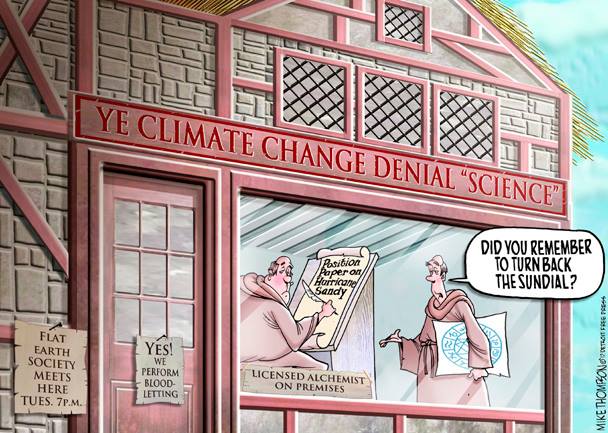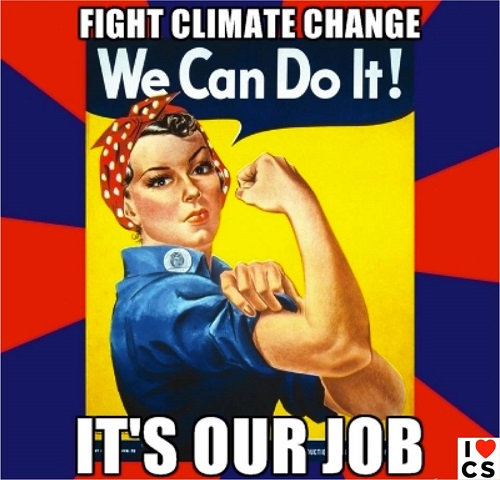
Deep Decarbonization Pathways Project (DDPP) Presents Interim Report to UN Secretary-General Ban Ki-Moon, a reprint of a UN press release, generated the most commets of the articles posted on SkS during the past week - illustrating once again that SkS readers and team members have deep and abiding perspectives about what should be done in order to prevent dangerous climate change The interim report supports the UN Climate Summit scheduled for Sep 23, 2014. The full DDPP report will be presented in the spring of 2015. [Click here to access the Executive Summary of the interim report.]

h/t to I heart Climate Scientists
“Disasters caused by weather, climate, and water-related hazards are on the rise worldwide. Both industrialized and non-industrialized countries are bearing the burden of repeated floods, droughts, temperature extremes and storms,” said WMO Secretary-General Michel Jarraud.
“Improved early warning systems and disaster management are helping to prevent loss of life. But the socio-economic impact of disasters is escalating because of their increasing frequency and severity and the growing vulnerability of human societies.”
Better disaster data enables better decisions, Press Release No. 998, WMO, July 10, 2014
In his Daily Kos blog post, 1% gets the 97%, doomvox references and links to John Cook's SkS article, An Externally Valid Approach to Consensus Messaging.
The Centre for Research on the Epidemiology of Disasters (CRED), has been active for over 30 years in the fields of international disaster and conflict health studies, with research and training activities linking relief, rehabilitation and development. CRED promotes research, training and technical expertise on humanitarian emergencies, with a special focus on public health and epidemiology.
The Centre undertakes research and provides an evidence base on the burden of disease and health issues arising from disasters and conflicts to improve needs-based preparedness and responses to humanitarian emergencies.
In 1971, Professor Michel F. Lechat, an epidemiologist at the Université catholique de Louvain, initiated a research programme to study health issues in disaster situations. Two years later he established CRED as non-profit institution with international status. Since 1980, the Centre has been a World Health Organization (WHO) Collaborating Centre.

Posted by John Hartz on Tuesday, 15 July, 2014
 |
The Skeptical Science website by Skeptical Science is licensed under a Creative Commons Attribution 3.0 Unported License. |